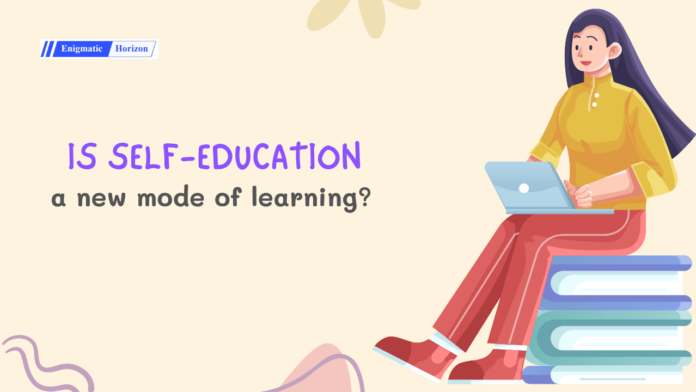Enigmatic Horizon Staff
A recent statement given by finance secretary T.V. Somanathan at the Union Budget 2023 has created a sensation among the netizens and opened the doors for discussions on the future of education in India. As goes the statement, “Pushing more money into education will achieve nothing”: Finance Secretary. This statement indicates that the quality of education in India won’t improve even if the government puts more money into the sector.
Now, to visualize this statement from a wider perspective, schools or any other academic institutions are the foundation of literacy among students. With the number of rising educational institutions and the advent of new education policies, competitiveness to achieve good grades is being equalized with better education. It is observed that the socio-economic factor imposes a strong relation to academic achievement.
Money creates more options for education, and this can lead to economic improvement. But this doesn’t change the fact that it can transform someone who is functionally illiterate into a scholar. After completing their child’s schooling, today, parents spend a huge chunk of money as well as their time and effort trying to make them ready for the next phase of life, i.e., college, by enrolling in coaching, tuition, etc. In many cases, this ruins their childhood and passion. In the mechanical era, no one ponders whether it is reasonable to turn creative minds into money-making geeks. Our nation’s educational approach is trying to turn potential athletes, chefs, artists, etc. into nerds.
The transformation of the education system can be attained with money by providing different types of education. For instance, streams such as athletics, art, vocational training, culinary arts, etc. really work with students to hone their actual abilities by turning skills and talents into action.
Another aspect of it is that since India is a developing economy and the per capita income of the country is low in comparison to the developed nations of the world, money is a necessary tool for providing education to all. There are a large number of economically disadvantaged sections in our society; most of them cannot afford quality education.
In this way, self-education can be a revolution in a world where digital progress and technological progress are happening quickly. For instance, during the time of the Coronavirus lockdown, there was a gradual shift to an online education mode of learning that gave rise to many job opportunities for remote professionals and students. The distance mode of learning also contributed to the academic scenario, as the students could write their exams from the comfort of their homes.
If we take a look at history, the education system that was prevalent in ancient India was the Vedic System of Education. The aim of ancient Indian education was not just to acquire knowledge as preparation for life but for complete self-realization for living in peace and contentment. Acquiring a degree on paper should not be the only criterion for personal development. The dignity of labor should be respected in any form of job, such as carpentry, farming, labor, and other blue-collared professions, and it should not be confined to white-collar jobs.
However, this doesn’t deny the fact that technology plays a major role in the structural development of any economy. Technology has been changed to make changes in all areas of life, and it has a lot of potential to make a big difference and change the education system in a big way by making education more equal and closing the digital divide. In remote villages and urban slums, where people may find it even difficult to afford basic internet facilities, schools can be hubs for e-learning and can provide a good learning environment. Lack of nutrition, parental support, and distractions from learning at school lead to poor results in children for the people in the poverty pockets of India. Hence, the government and policymakers can work with philanthropic organizations by utilizing the taxes and revenues for forming quality environments in schools, promoting self-learning opportunities for students, and encouraging the introduction of skill-based subjects in the curriculum to enrich children’s secure and bright futures.
